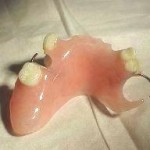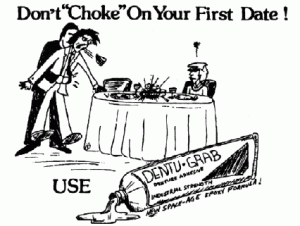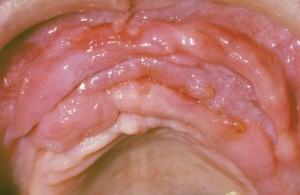What is an Immediate Denture?

An immediate denture is “a complete denture or removable partial denture issued immediately after an extractionâ€. Patient may have their teeth extracted due to caries, severe periodontal disease or for esthetic purpose. An impression is taken prior to the extraction, sent to the lab and constructed according to the patient’s cast of natural teeth. It has great advantages as the patient’s appearance is maintained with no edentulous period. Circumoral support, muscle tone, occlusion, jaw relationship, face shape and face height can be maintained. Speech and mastication is rarely affected and nutrition can be maintained sufficiently. Patient has a better social interaction with others.  As there is no try-in done beforehand, esthetics may not be satisfactory and patient may not feel comfortable with the resulting appearance and fit on the day the immediate denture is inserted. They are contraindicated in patients with poor general health, postirradiation of the head and neck regions, systemic conditions that affect healing or blood clotting. Uncooperative patients who fail to understand the demands and limitations of an immediate denture, fail to carry out proper oral hygiene measures will compromise the health of the remaining natural teeth and oral tissues. Continue reading →




